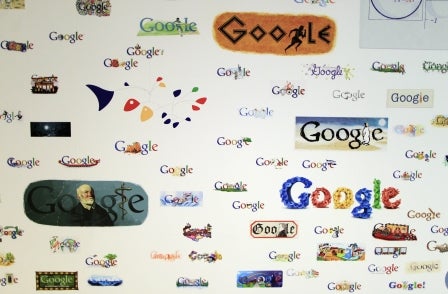
There is concern that the government’s proposals to change UK copyright law could lead to the weakening of journalists' ownership rights over their work.
The government said its proposals will “modernise the copyright system and remove unnecessary barriers to growth", but industry figures have told Press Gazette of their deep concern the plans could impact on journalist' incomes.
Industry organisations – including the National Union of Journalists (NUJ), the Chartered Institute of Journalists (CIJ), the Creative Writers Alliance (CWA) and the British Copyright Council (BCC) – are lobbying the House of Lords ahead of a debate on the proposals in early January 2013.
“We are in contact a number of Lords who sympathise with our views,” said Dominic Cooper, General Secretary of the CIJ. “They understand the need to protect creators’ rights."
Mike Holderness, Chair of the NUJ Copyright Committee and Chair of the Creative Alliance, said: “The government say they want to encourage the creative economy.
“But if they take income and credit away from individual creators, they will be undermining this. The government should accept that journalists need to be able to make a living as professionals.”
The background
In 2011 Prime Minister David Cameron launched the Hargreaves Review of Intellectual Property and Growth, which was followed by a 14-week consultation. The government then drew up a number of proposals to reform copyright law.
The Enterprise Regulatory Reform Bill is scheduled to be debated by the House of Lords Committee this month.
Richard Combes, head of policy and planning at the Authors Licensing and Collecting Society (ALCS), said: “Royalty payments come to journalists through various different sources; the main one is the copyright licensing scheme.
“Our job is to ensure people are paid for secondary use of their work – this is relevant to staff writers as well as freelancers.”
It is feared that the Government’s new proposals will weaken journalists' rights over their work.
The proposals
One proposal is to make copyright exceptions to allow limited acts of private copying. According to the Intellectual Property Office (IPO), this will "bring copyright law into line with the reasonable expectations of consumers."
Cooper said: “There is a quite a lot out there that people don’t apply their rights to. For example, when someone uploads a Youtube video – they don’t necessarily have any interest in protecting their rights to the video.
“Our concern is that journalists and writers, who rely on rights to their works as a source of income, will get swept up in the same legislation and suffer off the back of it.
“We must maintain that those who want rights to their works will retain their right to do so. We want to see caveats put in place that protect our members.”
Another proposal is to introduce provisions for “voluntary extended collective licensing schemes”. This would allow authorised collecting societies to license on behalf of all rights holders in a sector.
Holderness said: “This would mean that works can be used without seeking direct permission. There is considerable concern among members that these proposals will eat up the rights of writers.”
A third proposal seeks to establish licensing and clearance procedures for “orphan works” (material with unknown copyright owners). The IPO argue that this would open up access to works that are currently locked away in libraries and museums.
However, Cooper believes this proposal poses one of the biggest threats to journalists: “This will effectively mean lots of works out there will become orphan works by default,” he said.
"Without someone’s name being attached to their work, they will lose their copyright to it. We are concerned that this will be abused by those who seek to cut corners and save money.”
He continued: “Photographers particularly concerned about their work being reused, and about the possibility that their work might be declared an orphan.”
The NUJ is lobbying the Lords to vote in amendments to the bill which will ensure journalists’ rights are enshrined. The union wants any change to the law to uphold the author’s right to a share of any income derived from their work, including an orphan work that is subsequently claimed.
It is feared that Cameron's changes to copyright law will favour internet giants like Google, at the expense of individual writers.
An NUJ Freelance branch newsletter pointed out that: “The proposals are hopelessly skewed towards the interests of those – such as Google – who want to make money by re-using existing words, pictures and sounds.”
Email pged@pressgazette.co.uk to point out mistakes, provide story tips or send in a letter for publication on our "Letters Page" blog
